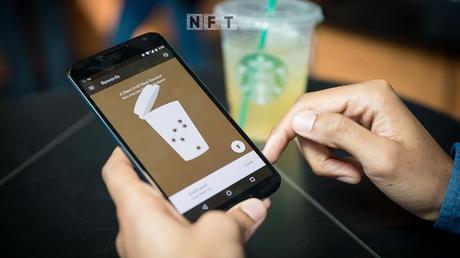
In the past year, NFTs have become popular, with brands often associating them with digital gifts, merchandise, and unique experiences. Though these tokens have slowly lost some of their shock factor, Starbucks’ upcoming attempt to include NFTs in its vaunted loyalty program could activate a motivation.
In the latest earnings call, the company revealed a September release date for NFT Internet connectivity, a move aimed at exciting new customers to its loyalty program, that already offers free drinks and merchandise. In addition, the chain hopes the loyalty update will benefit its midpoint retail businesses.
“This new Web 3-enabled digital initiative will let us build on the current Starbucks Rewards engagement model with a powerful Spend to Earn Stars approach, as announcing new ways to emotionally engage customers, our third rank digital community and a wider range of prizes”. Starbucks’ interim CEO Howard Schultz said during the call.
Though the whole details of the program have yet to be revealed, the announcement created waves in the marketing industry. Starbucks’ loyalty program is a very successful part of the business, with more than half of its sales coming from rewards members. Connecting this program to the virtual world and the blockchain technology underlying NFTs could pave the way for upcoming programs.
“NFTs can make sense for loyalty programs because it’s another way to communicate with consumers,” stated Pedro Rodriguez, senior vice president of growth and transformation at Horizon Media and president of Chapter and Verse. “By deprecating cookies, your access to the first-party data becomes essential.”
Some companies have now began to present similar concepts. Last December, Applebee’s released an NFT-based promotion in which the owner of an exclusive digital image unlocked a year’s worth of real-world purchases from the chain. Taco Bell and Domino’s are notably exploring ways to connect NFTs to their loyalty programs, though those brands’ NFT promotions have historically contained fundraising for their charitable arms.
Strong bets on NFTs can help the business for a number of reasons, but at its center is the potential to appeal to younger consumers who haven’t yet participate in Starbucks’ rewards program. If this strategy is successful, other marketers looking to attract Gen Z can follow suit.
“There is a generational difference between using Twitter and TikTok,” Rodriguez said. “There is a generational gap in mobile, and you have to start playing in the spaces which the new generation is in.”
In addition, allowing consumers to trade NFTs based on their changing interests and loyalties could be a way for brands to decrease costly balance sheet liabilities.
“Points liability is a big deal,” said Mary Pilkey, vice president and principal analyst for loyalty programs at Forrester. “The fact that an NFT is tradable means that it has value. When I’m no longer passionate about the product or brand, it’s easier for me to share that value. They are an exchange of value between brands.”
While privacy and accessibility become more of a concern, NFTs are a way for consumers to gain valuable information they share with brands. An NFT associated with loyalty rewards provides a tangible exchange of value which can make the transaction worthwhile for both parties.
“It is a way to give data and get something in return,” Rodriguez said. “The consumer does not want anything from a brand unless it is something of value”.
However, Starbucks may face an uphill battle. In Forrester’s March 2022 Consumer Energy Index and Retail Pulse survey, 72 percent of consumers said they had never heard of an NFT and were not interested in purchasing or having one.
“People don’t know what an NFT is, and they don’t know that its value can extremely change ,” Pilecki said. “Starbucks will do its best to help customers understand them, but there are already too many of them, and we don’t know. There is no consumer protection and there is probably be a tax liability for NFTs because they have value.”
However, this category could provide upside potential in the long term. Consumer comfort with new technologies and platforms can be slow, but brands waiting in the wings risk being left behind.
“If there is a brand that thinks NFTs are the solution, they should be looking at NFTs now,” Pilecki said. “Starbucks will not be the last. We will see plenty of experiments with NFTs in the future.”
Leave this field empty if you're human: